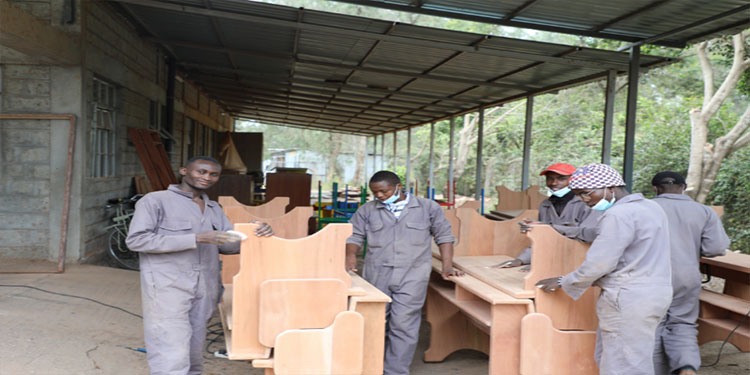
Kenya’s woodworking industry is a vital and diverse sector that contributes to the country’s social and economic development. The industry includes a wide range of jobs, including logging, sawmilling, furniture manufacturing, joinery, carpentry, wood carving, and the production of wood products. More than 300,000 people are employed in this industry directly or indirectly, and it supports the livelihoods of numerous rural and urban communities. Kenya offers a wide range of woodworking equipment, including table saws, electric planes, electric drills, jigsaw machines, multipurpose woodworking machines, and wood lathe machines. Kenyan woodworking machine prices are determined by the kind, model, brand, quality, and state of the equipment. There are several places to buy new or used woodworking machines, including internet retailers, neighbourhood dealers, and direct importers.
Kenya’s woodworking industry has a great deal of room to grow and innovate because of the nation’s strategic location in the region, growing population, and wealth of forest resources.
Kenya’s woodworking industry is pushing for the adoption of a holistic and sustainable strategy that balances the industry’s social, environmental, and economic facets in order to overcome obstacles and reach its full potential. Several potential approaches and measures that are being considered in order to accomplish this include:
• Increasing the sector’s quality and productivity through the use of best practises and standards, modern machinery and equipment purchases, infrastructure and logistics upgrades, and the promotion of innovation and research.
• Increasing the sector’s ability to reach new markets and become more competitive by diversifying its offerings, boosting branding and value addition, looking into untapped markets, and improving trade facilitation and promotion.
• Improving forest governance and management by enacting sound laws and procedures, defending the rule of law and combating corruption, encouraging stakeholder and local community participation, expanding forest cover, and conservation activities.
• Increasing the sector’s capability and skill set through education and training programmes, generating revenue and jobs, assisting small and medium-sized businesses and cooperatives, and empowering women and young people.
• Reducing the sector’s negative effects on the environment and society by implementing efficient and clean technologies, cutting back on waste and emissions, protecting the health and safety of employees and customers, and promoting social welfare and community development.
The future of Kenya’s woodworking industry depends on the combined efforts and cooperation of all the industry’s players and partners, including the public and commercial sectors, donors, civil society, and end users. Together, they will build a thriving and long-lasting woodworking industry that will be advantageous.
